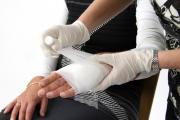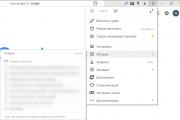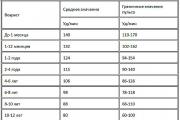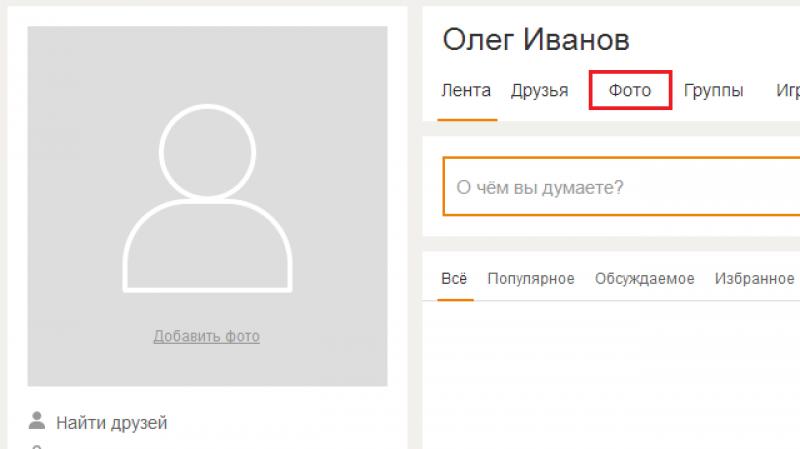High heart rate - what to do first? How to lower the heart rate?
Every fifth mature person over the age of forty is faced with such an ailment as a high pulse. Everyone who has found three-digit numbers of heart beats on their tonometer should know what to do.
Why is high heart rate dangerous?
Normal heart rates are individual for each person, however, according to statistics, they are found in healthy people. ranging from 60 to 90 beats per minute.
Pulse measurements for special accuracy should be carried out in the morning on an empty stomach: the use of certain products can slightly correct the indicators in one direction or another, and by the evening the pulse inevitably rises. In addition, you need to remember that in a standing position, the frequency of contractions is higher.
The pulse can be measured with sufficient accuracy using modern electronic tonometers. However, this can be done without special devices, catching the heartbeat at the wrist, temples or neck. The measurement should be taken for a minute; less is not recommended as the readings will be inaccurate.
By itself, a high pulse is not a disease, but it accompanies many dangerous diseases. Indicators above a hundred should be a serious cause for concern: in the case of too frequent contractions of the heart, it does not have the opportunity to fill up, which is the cause of oxygen starvation.
This violation in the body is subject to immediate treatment, otherwise the following disorders will begin to develop:
- Ventricular failure;
- Circulatory problems in the brain leading to a stroke;
- Cardiac asthma (attacks of suffocation accompanying heart disease);
- Arrhythmic shock is a violation of the heart rhythm, which leads to a decrease in blood pressure and the appearance of symptoms of shock.

Why high pulse at normal pressure?
If the pulse reaches 80 beats in a supine position and more than a hundred in a standing position, and a person has not experienced physical or emotional stress in the last five minutes, then he suffers from a very common disease - tachycardia.
The reasons for the growth of the pulse at normal pressure values \u200b\u200bcan be either a completely normal reaction of the body to some pathogens, or pathological.
In particular, it is quite normal if the pulse has increased as a result of such factors:
At the same time, tachycardia can be a companion of the following health problems:
- respiratory disorder;
- vitamin deficiency;
- Intoxication;
- Diseases of the cardiovascular system;
- endocrine disorders;
- Diseases of the nervous system.

High pulse at high pressure: what to do?
An increase in heart rate, in itself, is an unfavorable factor for the body, and in combination with increased pressure, it forms an explosive mixture. At the same time, it becomes difficult for a person to breathe, he is tormented by an unbearable headache in the temples and the back of the head, pain in the chest.
The main thing that should be done in this situation is to go to the doctor and identify the cause of this condition, since the result of self-treatment can be very sad.
However, in the short term, the following tips may help:
- If increased pressure and pulse are caused by physical overstrain, then it should be stopped;
- Open a window or, if possible, a window for fresh air;
- Drink some water and lie down for twenty minutes;
- Squeeze the upper abdomen with your hands;
- Do breathing exercises: hold your breath, close your nose with your fingers and strain;
- Massage of the neck (on the side where the carotid arteries are) may help;
- If available, take sedatives - valerian, peony, motherwort. Both alcohol solutions and tablets are suitable;
- If the pressure is especially high - you should take "moxonidine" or "captopril";
- If the chest hurts and the mind becomes cloudy, it is better to call an ambulance.
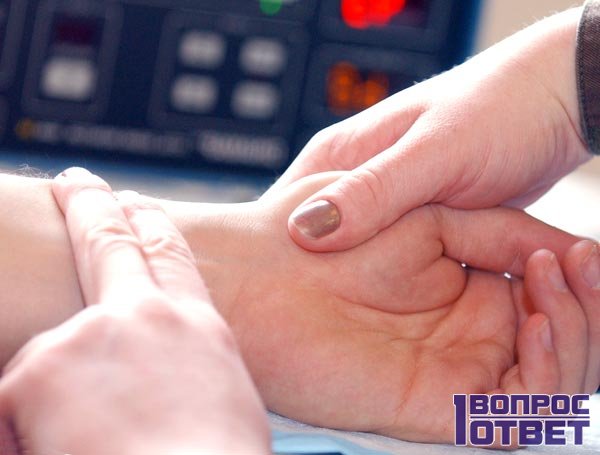
Rapid heartbeat with low blood pressure
High pulse in tandem with low pressure can be caused by such factors:
- blockage of blood vessels (atherosclerosis);
- Dehydration;
- Serious blood loss;
- Pregnancy;
- Difficulties with electrical conduction of the heart;
- Body temperature is below normal;
- cardiac ischemia;
- Heatstroke;
- Side effects of various drugs;
- Diabetes;
- Myocardial problems.
This situation often occurs in people in adulthood. Often a strong, almost loud heartbeat is accompanied by:
- Dyspnea;
- Headache;
- Pallor;
- Weakness, feeling of loss of strength;
- Dizziness;
- In severe cases, fainting may occur.
Most often, all these symptoms are signs of an upcoming tachycardia.
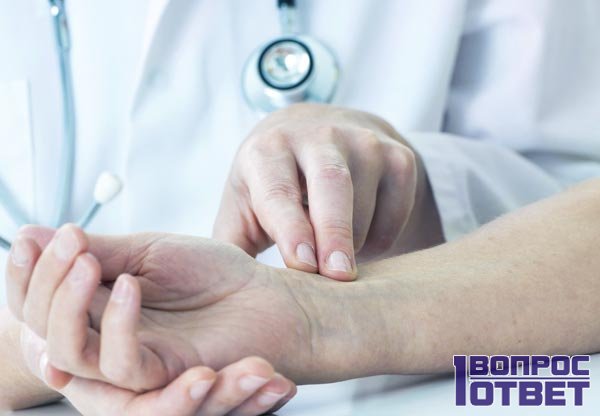
Rare pulse with high pressure: what to do?
As a rule, high blood pressure goes hand in hand with a high heart rate. However, the opposite situation often happens - the pulse is below 60 beats at a pressure of about 150/90. This condition may be a sign of the following diseases:
- Pathologies and prophets of the heart muscle;
- Problems with the thyroid gland;
- Failure of the hormonal system;
- Violations of the sinus node;
- Vegetative-vascular dystonia;
- A side effect of a long course of medication;
- Inflammatory process of the inner heart membrane - endocarditis;
- Heart block.
In this case, a trip to the doctor is required. To avoid a recurrence of this condition, you need to:
- Take all drugs prescribed by a specialist;
- Give up bad habits in the form of smoking and excessive libations of alcohol;
- Do not lean on strong coffee and tea;
- Take care of your mental health and avoid stress and depression as much as possible;
- Constantly keep your finger on the pulse - and in the truest sense of the word: a pathology detected in time contributes to a successful cure.
Tachycardia is called constant, without physical exertion and stress, high heart rate. What to do, tell only a certified specialist. Self-medication can lead to very sad consequences.
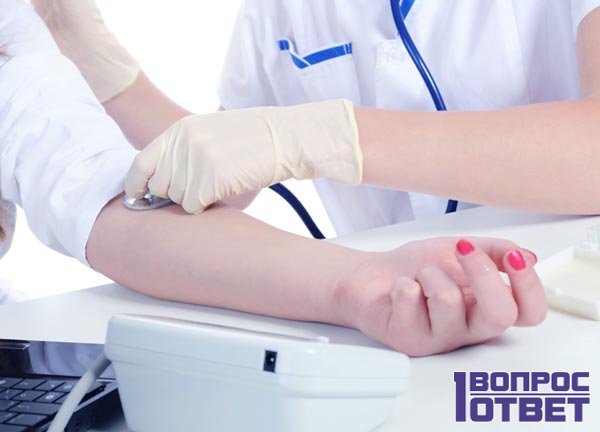
Video about the frequency of the heart
In this video, cardiologist Ilya Repin will tell you which pulse is considered normal and which is elevated:

